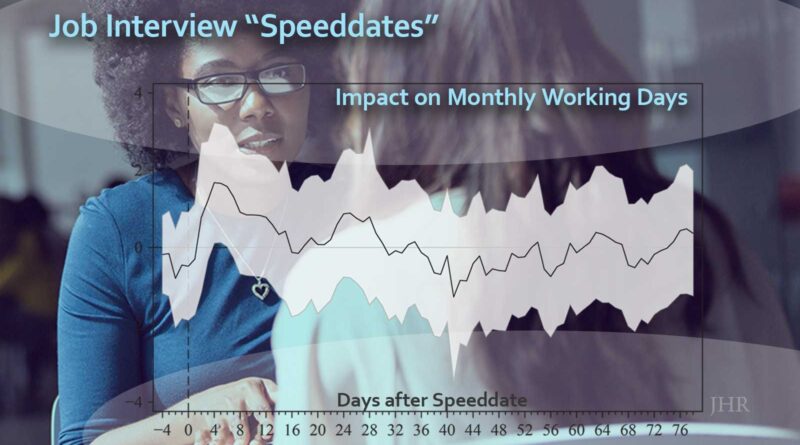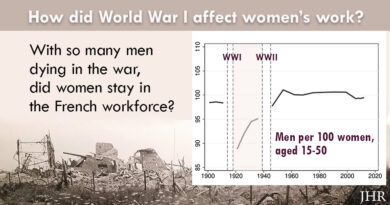Can Temporary Work Agencies Reduce Unemployment?
Temporary work is considered an important channel for unemployed job seekers to find work, but does it have an effect on these workers in the long run? The Dutch unemployment insurance administration introduced so-called labor market “speeddates”—events where unemployed job seekers meet different temporary work agencies. To evaluate the effectiveness of these speeddates, researchers Bas van der Klaauw and Lennart Ziegler conducted a randomized experiment in which a random subsample of more than 12,000 unemployed job seekers were invited to attend such a speeddate event
As shown in the figure, treated job seekers indeed work more in the first month after a speeddate. A large part of this increase is driven by work at temporary employment agencies, but participants are also more likely to find regular employment. Because the speeddates reduce the number of benefit recipients, the program is highly cost-effective for the unemployment insurance administration. Participants also claim to be more motivated and report lower wages for which they are willing to work. The latter suggests that participation in speeddates lowers the expectations of job seekers.
But there’s a downside in the long run. The positive employment effects disappear in the following weeks, and participants have slightly lower wages in the longer run. Unemployed job seekers, on average, experience an earnings loss when they participate in a speeddate event. Jobs mediated by participating agencies are not stepping stones towards regular employment.
Read the article in the Journal of Human Resources: “A Field Experiment on Labor Market Speeddates for Unemployed Workers” by Bas van der Klaauw and Lennart Ziegler.
***
Bas van der Klaauw is a professor of economics at VU University Amsterdam and a research fellow at the Tinbergen Institute (@BasvdKlaauw). Lennart Ziegler is an assistant professor of economics at the University of Vienna (@lenny_ziegler).




